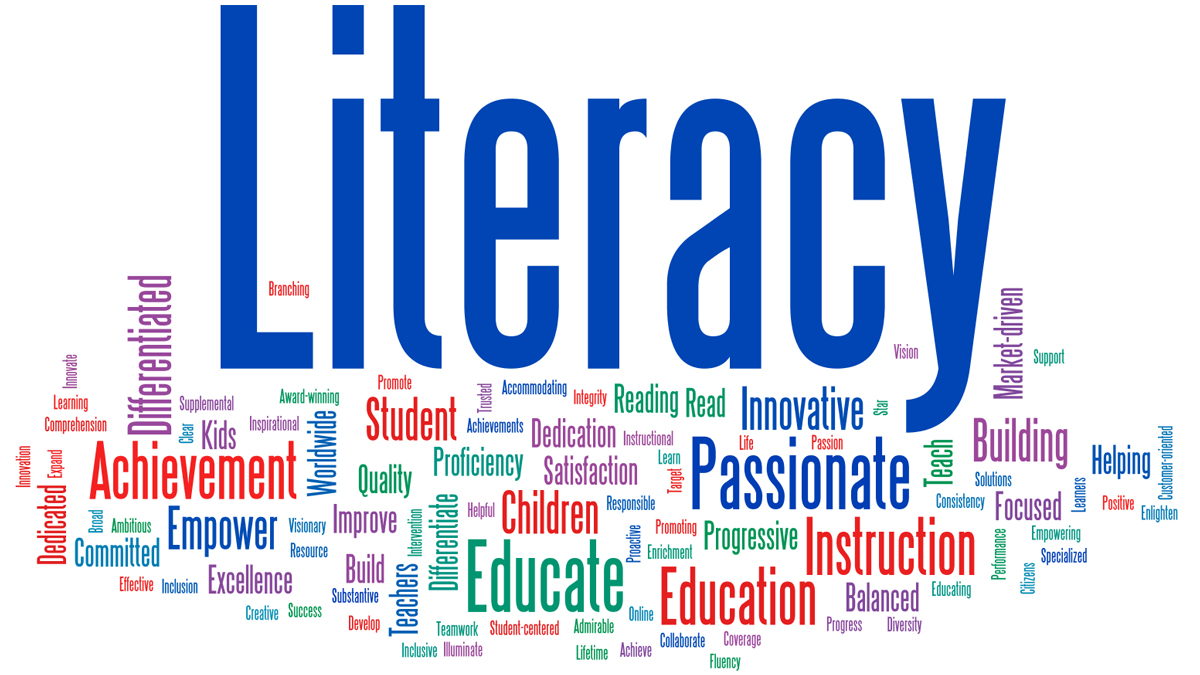
The Program for the International Assessment of Adult Competencies (PIAAC) defines literacy as as “understanding, evaluating, using and engaging with written text to participate in the society, to achieve one’s goals and to develop one’s knowledge and potential.” The National Center for Educational Statistics uses this definition to measure literacy world wide and also specifically in the U.S. It’s not a pretty picture. As of 2017 they have determined that 52% of the population of the U.S. read at less than a level 3 ability of literacy.

Setting aside the various definitions of levels (link here to definitions), I find the fact that so many people cannot read with basic reading comprehension is important to remember when trying to understand how we live now.

First of all, if the written page is challenging, surely words on a screen are more so. In my mind, reading comprehension is linked to reasoning, weighing ideas, making or even withholding judgments and conclusions until achieving as much understanding as possible and then continually reevaluating your understanding.

I try to operate on the principle that great books are in conversation with each other. I learned this from Mortimer Adler and his ideas on How to Read a Book.

This is very important to me at this point in my life. Ideally I would love to have conversations with breathing, living people, but this does not seem possible for me right now living where and how I do. But reading and thinking about ideas is possible and it often seems like I am listening to, and learning and conversing with other people in the books I read and the music I play and study.

But this is a far cry from basic literacy. How does the lack of reading skills affect computer and internet literacy. I know from my own experience that reading a screen is very different from reading a book. For example, when I began using email, I quickly noticed that it is easy to read it too quickly or ignore portions of an email if I’m not careful.
Online communication can be problematic. As I read a book I begin to get an idea of the person behind the book. Sometimes I even hear the prose in the voice of the person who wrote it. Either way I began to build up an orientation to the person whether this is completely accurate or not.
But reading online is different. It is easy to misconstrue the emotions behind plain words on the screen.
Taking a step beyond considering the reading comprehension of people I disagree with, what about the ones who are highly educated and could presumably comprehend reading and ideas much better?
This is something else I’ve been working on. This is a reason for me to read educated conservatives. I think that Lewis Raven Black’s ideas about the myth of journalistic objectivity may apply here.

Is it time to ask how subjective we all are despite feeling like we are being clear and objective? Specifically, how did the Right set out to change courts and the government to fit in with their goals and at the same time maintain an understanding of themselves as reasoning objectively. Maybe the answer is that none of us really manage to reason in a pristine objective manner.
This would explain how there are highly intelligent, educated people like Supreme Court Justice John Roberts who can be so clearly wrong about the current state of racism in our country and still be so bright and able to reason.
I am not discounting the many cynical partisans who are manipulating the culture wars for their own purposes. Purposes that can be idealistic but are often rooted in gaining power and making lots of money.
This is a lopsided situation Right now in the U.S. The Right got there first and have been using basic propaganda and framing techniques to support their own values. The left pretty much by definition is more open to give and take. To be liberal is to be tolerant, however, I don’t think the left historically has always eschewed these unethical approaches, but currently it is the Right has moved us closer to fascism and non-representative democracy.
Lewis Raven Wallace as a journalist is not ready to abandon “facticity” and “non-partisanship.” But these are only two of five factors he quotes from media historian David Mindich. The other three are detachment, the use of the inverted pyramid model for news, and balance.

I put that illustration up to show an understanding of the inverted pyramid concept. But I’m more interested in detachment and balance. This is where I see so many breakdowns of so-called objectivity.
Remembering that other people are often operating without the ability to read and comprehend and reason is helpful. Not so that I can despise them but actually so I can be more sympathetic. Also it’s helpful for me to understand people I disagree with. Especially when I know they are smart and educated.